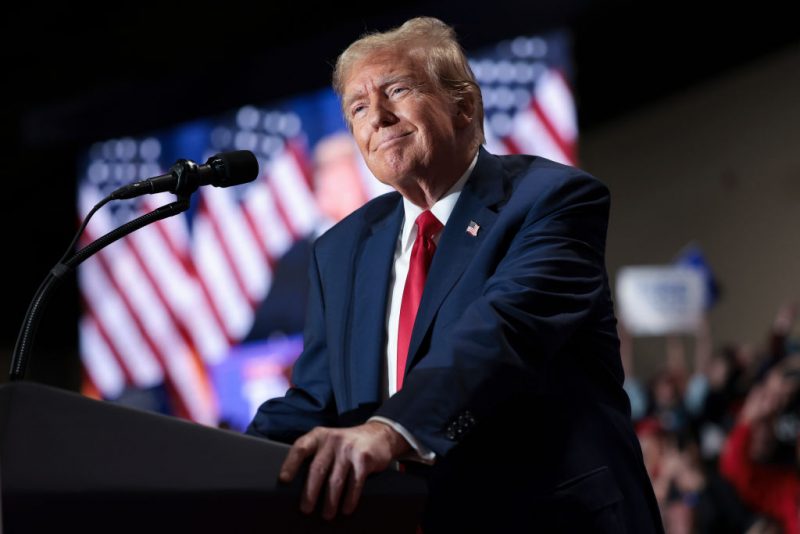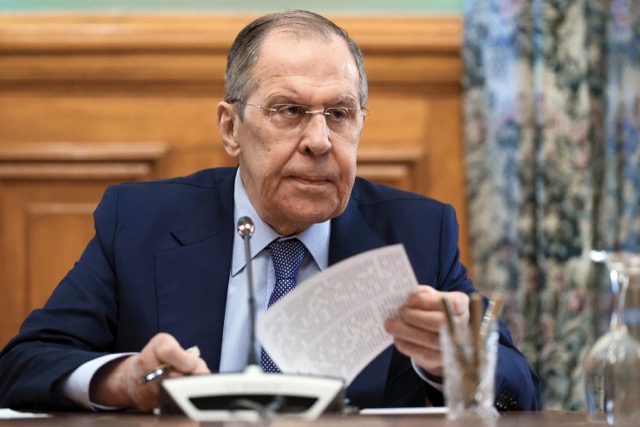President-elect Donald Trump is poised to ramp up deterrence against China’s aggression during his second term.
The first Trump administration shifted U.S.–China relations from partnership to strategic competition. It restricted China’s access to U.S. semiconductor technology and capital, while prioritizing the Indo–Pacific region as the United States’ focus. The Biden administration continued on this trajectory.
By the end of his first term, Trump witnessed the consequences of relying on the communist regime. The United States suffered from the COVID-19 pandemic, which originated in China and was covered up by the Chinese Communist Party (CCP). The January 2020 phase one trade deal, intended to rebalance the trade deficit, went largely unfulfilled.
On Nov. 16, during his final official meeting with President Joe Biden, CCP leader Xi Jinping expressed willingness to work with Trump’s incoming administration. “China’s goal of a stable, healthy, and sustainable China–U.S. relationship remains unchanged,” Xi said.
Recently, while congratulating Trump on his reelection, Xi remarked that both nations “stand to gain from cooperation and lose from confrontation.”
However, experts anticipate more confrontation.
Yuan Hongbing, a former Peking University law professor and Xi’s associate during the 1980s, stated that Xi and Trump’s “conflict of fate” is “inevitable.” Yuan claims Xi seeks to revive the international communist movement and dominate humanity’s future through communism—a vision at odds with Trump’s “Make America Great Again” platform.
While Xi has spoken of peaceful coexistence, Yuan noted that such remarks align with the CCP’s pattern of making conciliatory public statements while pursuing aggressive actions.
David Arase, a professor at Johns Hopkins University’s Hopkins-Nanjing Center, compared Xi’s statements to a Chinese metaphor about two tigers ruling separate mountains. “But we’re in a globalized world. The world doesn’t divide that way anymore,” he said, calling China’s approach “fundamentally anachronistic.”
“The U.S. is not going to just abandon its investment, trade, and security interests in Asia,” Arase added.
Economic Conflict
Since Trump left office in January 2021, the U.S.–China competition landscape has shifted.
The United States faces high inflation and is stretched thin supporting wars in Ukraine and Israel. Meanwhile, China’s pandemic-strained, debt-fueled economy struggles to meet its growth targets despite $2 trillion in stimulus packages since September 2023.
Under the Biden administration, China’s state-subsidized industrial growth surged, exacerbating overcapacity. U.S. Treasury Secretary Janet Yellen recently criticized China’s policies for failing to boost domestic consumption, adding that overcapacity and dumping remain critical issues.
Nick Iacovella of the Coalition for a Prosperous America argues that diplomacy with China is futile. “The CCP cannot afford to rein in overproduction; it’s essential to their economic model,” he said.
Chinese exports recently spiked, partly due to importers stockpiling ahead of anticipated tariff hikes under a second Trump term. Trump’s first term saw a nearly two-year trade war with China, culminating in the phase one trade deal that Beijing failed to honor.
While campaigning in Pennsylvania, Trump said his first call as president would be to Xi, demanding compliance with the deal.
Strategic Decoupling
Experts expect Trump to prioritize U.S.–China relations, likely through direct communication with Xi, which Arase believes could provide clearer guidance for policymakers. However, Arase remains skeptical about new trade deals, citing entrenched conflicts.
Since 2022, Xi has urged CCP members to “dare to struggle” in confronting the West. Arase doubts Xi can compromise, while Iacovella predicts Trump will avoid new negotiations, focusing instead on tariffs, industrial policies, and curbing China’s access to U.S. capital and incentives.
Iacovella foresees accelerated decoupling if Trump resumes office, building on measures from his first term, such as delisting Chinese telecom giants and restricting U.S. investments in Chinese military-linked companies.
The Biden administration has also tightened controls on outbound investment to China in critical sectors like AI, semiconductors, and quantum computing. Trump is expected to push these policies further, intensifying the strategic competition.
 Telegram is where we really talk. Don't miss out!
Telegram is where we really talk. Don't miss out!







